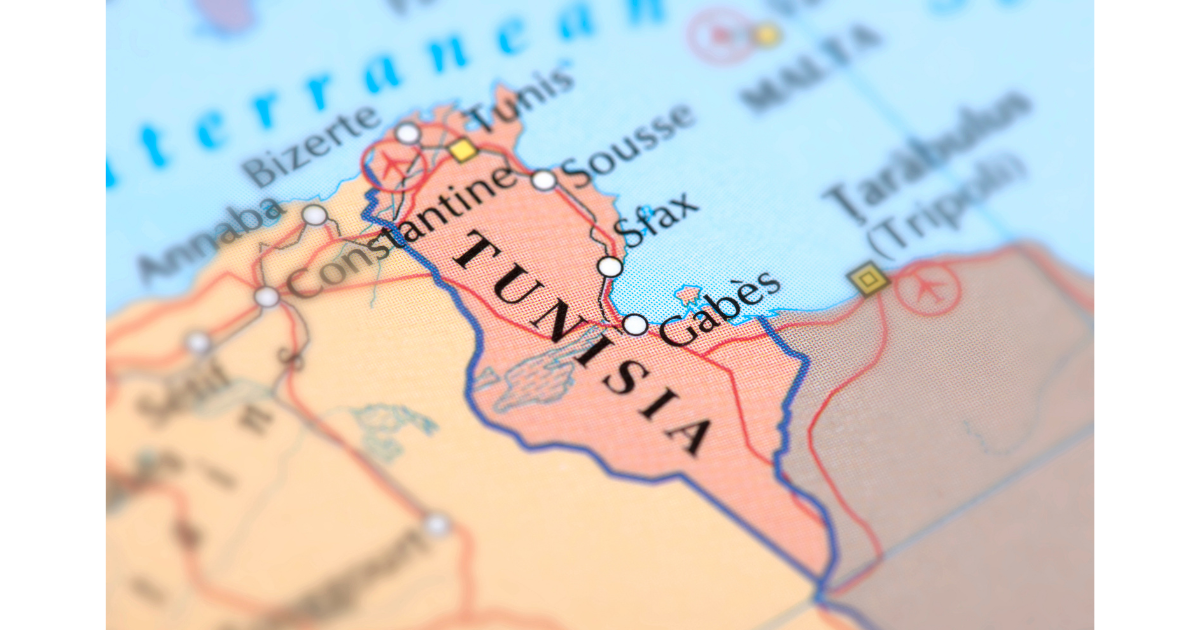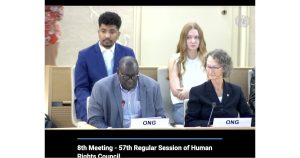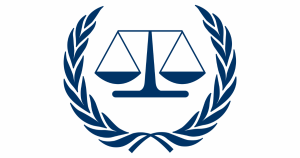– Read the appeal in French, Arabic
More than a year after the President of the Republic of Tunisia’s statement following a meeting of the National Security Council linking the presence of migrants to “a plot to alter the demographic composition of Tunisia”, systematic violations and racist and xenophobic campaigns targeting sub-Saharan migrants in the country continue unabated.
The policies of successive governments have continued to bow to the dictates of the European Union in the externalisation of its borders, delegating security management and border surveillance to the countries of the southern Mediterranean. This outsourcing is accompanied by the pitting of financial aid, subsidies, and loans to be paid to southern countries on the condition that they agree to play the role of the EU’s border guards. These measures have been ratified within the framework of various agreements with different countries neighbouring the European Union to the south. They continue scorning the fundamental basis of any equitable partnership, which can only be founded on a balanced relationship of mutual respect between the countries of the Global North and the Global South.
In addition to intercepting migrants in national territorial waters, the Tunisian National Guard also endeavours to pursue them within the country, notably by arbitrarily displacing them, disregarding humanitarian considerations and the international conventions signed and ratified by Tunisia. These violations occurred in several regions of the country, where security forces decided to push migrants towards rural, peri-urban areas, notably in El Aamra, El Jédériya, and Kasserine, where their situation is becoming increasingly worrying and alarming.
It is also important to recall the disastrous consequences of the forced displacement of migrants by the Tunisian authorities to the desert buffer zone along the Tunisian-Libyan border since this past summer, under the blazing sun, denying them access to the aid that organisations and citizens were trying to provide them.
Faced with this horrific situation, particularly the worrying conditions of people on the move who were in the city of Sfax, the Tunisian authorities responded solely from a security perspective, ignoring the human and humanitarian dimensions.
In this context, it is essential to also highlight the relentless actions taken by the security apparatus since March 19, 2024 against the former president of the Association of African Students and Interns in Tunisia (AESAT), Christian Kwongang, a Cameroonian citizen. These actions included his arbitrary detention in the El Ouardia Centre.
It should also be stressed that several people testify to the direct involvement of the Tunisian authorities in the violence perpetrated against migrants, both during interception operations at sea and during removal interventions on land.
In view of the above, the signatory organisations and associations wish to:
- Express their concern at the serious and systematic human rights violations suffered by migrant workers, as well as the systematic campaigns of incitement to hatred and violence, and call for investigations to reveal the truth and prosecute the perpetrators of these violations.
- Express their total solidarity with the AESAT, condemn the harassment of Christian Kwongang, and demand immediate guarantees that his rights will be respected.
- Demand clarifications on the basis and legal framework for the detention of migrant persons, including at the El Ouardia Centre, which operates outside of any framework or judicial supervision, in blatant violation of Tunisian laws and of the international conventions ratified by Tunisia, as was confirmed by the decision of the Administrative Court in 2020.
- Condemn the European Union’s border security and outsourcing policies, which undermine human rights, and call on the Tunisian state to respect national and international law with regards to people on the move, and to reject all European border externalisation policies.
Signing organisations
- Ligue tunisienne des droits de l’homme – LTDH
- Forum Tunisien pour les Droits Economiques et Sociaux – FTDES
- Association Lina Ben Mhenni
- Calam
- Legal Agenda
- Association Intersection pour les Droits et les Libertés
- Avocats Sans Frontières – ASF
- Association Mada
- Comité de Vigilance pour la Démocratie en Tunisie
- International Service For Human Rights – ISHR
- L’association Sentiers-Massarib جمعية مسارب
- Beity
- WeYouth Organization
- Association TaQallam pour la liberté d’expression et de créativité (جمعية تكلّم من أجل حرية التعبير والابداع)
- Association Ifriqiya
- Al Khatt
- Inkyfada
- African Business Leaders
- Aswat Nissa
- Association Tunisienne de Défense des Libertés Individuelles – ADLI
- No Peace Without Justice
- Association Nachaz-Dissonances
- Coalition Tunisienne Contre la Peine de mort – CTCPM – الائتلاف التونسي لالغاء عقوبة الاعدام
- Organisation Contre la Torture en Tunisie – OCTT – المنظمة التونسية لمناهضة التعذيب
- Association pour la Promotion du Droit à la Différence – ADD
- Comité pour le Respect des Libertés et des droits de l’Homme en Tunisie – CRLDHT
- Fédération des Tunisiens pour Une citoyenneté des deux rives – FTCR
- Union des Travailleurs immigrés Tunisiens – UTIT
- Minority Rights Group – مجموعة حقوق الأقليات
- EuroMed Rights
- Migreurop
- A Buon Diritto
- CCFD-Terre Solidaire
- ARCI
- Watch The Med – Alarm Phone
- Associazione per gli Studi Giuridici sull’Immigrazione – ASGI
Sami Bargaoui, universitaire
Monia Ben Hamadi, journaliste
Hechmi BEN FREJ militant
Insaf Machta, universitaire
Walid Mejri, journaliste et activiste (وليد الماجري، صحفي وناشط)
Marta Luceño Moreno
Chokri Latif, Ecrivain – شكري لطيف – كاتب
Fayçal Ben Abdallah, président de la FTCR
Mouhieddine Cherbib, président du CRLDHT
Fathi TLILI, président de l’UTIT
Mohamed Ben Saïd, FTCR/ CRLDHT
Mourad ALLAL, CRLDHT
Mohsen DRIDI, FTCR
Kamel JENDOUBI, CRLDHT
Patrizia Mancini
Hamadi Zribi
Zaineb Mhemdi




